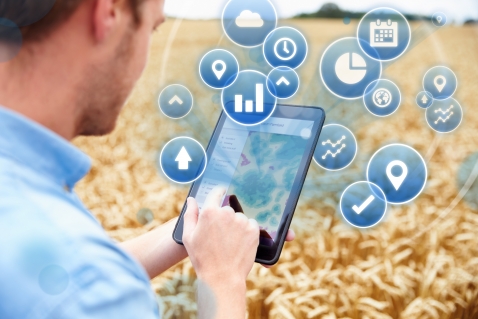The European Data Portal publishes a new report on open data in rural regions
Fecha de la noticia: 21-01-2020

Last December the European Data Portal published a new report entitled Analytical Report 14: Enabling Smart Rural: The Open Data Gap, which examines the collection, availability and use of open data in rural areas.
27% of the citizens of the European Union live in rural areas where it is not easy to implement the same processes, technologies and activities that are driving the cities transformation. In a European context where smart cities are being promoting, the report focuses on the differences and synergies between rural and urban areas in terms of opening and reusing open data. To this end, the available resources have been analysed and 6 respondents have been interviewed: 3 experts from national portals in rural countries (Ireland, Romania and Slovenia) and 3 experts in agriculture, fisheries and the forestry sector.
Availability and reuse of rural data
The first part of the report focuses on knowing the availability of rural data, focusing on two categories of data:
- Rural population data: data relating to people living and working in rural areas, such as the availability of housing, connectivity, access to transport, demographic profile, employment levels or public services access, among others.
- Rural sectors data: Data related to the main sectors of the rural economy, that is, agriculture, fisheries and the forestry sector.
The conclusion reached by the report is that there is more open data from the second category (rural sectors), than from the first (rural population). Specifically, almost 14% (13.75%) of all EDP data sets are agricultural data.
Many of the challenges that public agencies face when opening data in rural areas are the same challenges they face in cities, such as lack of awareness or standardization. However, other aspects such as the digital gap or technological capabilities gaps (worse broadband connection, fewer devices ...) also influence
With regard to reuse, the report highlights the great potential of rural open data to generate economic and social benefits through several examples and success stories, such as increasing transparency in the agricultural products market. As before, the reuse of data related to rural sectors is higher than the reuse of data related to the rural population.
The report also highlights that the majority of rural data reuser and companies are located in urban areas, where awareness of the benefits of this type of data and its possible uses is higher.
Recommendations to boost the opening and reuse of rural data
The report ends with a series of recommendations for member state governments to promote the publication and use of data at the rural level. These recommendations are structured around 3 areas:
- Data collection
- It is necessary to establish and institutionalize open data processes and practices in rural administrations, with close relationships to urban open data groups
- The report recommends paying attention to high-value agricultural datasets, because there is currently a a gap between their agricultural percentage of GDP and their open agricultural datasets.
- Data opening
- Collaboration links must be established with complementary data owners, such as non-profit organizations, researchers or private organizations, that allow data to be opened and made available together.
- The report highlights the term Smart regions, covering both smart cities and nearby rural areas, to generate synergies, and recommends investing in understanding the key factors of smart regions that mean they are more fit for purpose.
- Data reuse
- It is necessary to establish links with urban areas, through instruments such as study centres or universities.
- Finally, the report recommends to identify the rural-specific challenges, such as out-migration, health solutions that address distance, and food provenance.
The report concludes by highlighting the need to institutionalize the commitment to open data and foster the skills necessary for the publication and use of open data on both the population and the rural sectors, so that they are not involuntarily excluded from the benefits of data economy.










